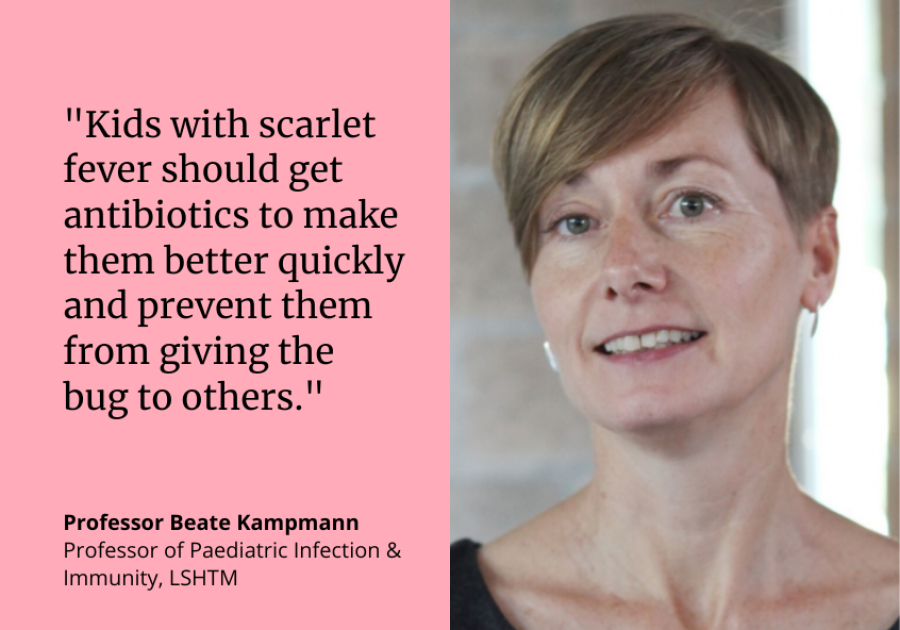Expert comment – Parents warned of Strep A symptoms after UK child deaths
7 December 2022 London School of Hygiene & Tropical Medicine London School of Hygiene & Tropical Medicine https://lshtm.ac.uk/themes/custom/lshtm/images/lshtm-logo-black.png
Group A strep bacteria causes infections including scarlet fever, which can be treated with antibiotics. But in rare cases it can cause serious illness and death.
Following widespread news coverage of the deaths of children in the UK, Professor Beate Kampmann from the London School of Hygiene & Tropical Medicine (LSHTM), said:
“Group A strep (GAS) is a well-known bacterium that exists worldwide and can be simply carried in our noses or on the skin without causing symptoms. However, it also causes throat infections and sometimes a condition called scarlet fever, which is associated with a rash, red tongue and swollen glands. Scarlet fever should be treated with Penicillin to make sure the patient gets better quickly and treatment also stops transmission to others.
“In very rare circumstances it can gain access to the bloodstream, what we call invasive Group A strep (iGAS). This can cause really serious illness such as bad pneumonia, sepsis and toxic shock with organ failure, and this unfortunately appears to have been the case in the tragic deaths of the children.
“There is no vaccine – yet – but Group A strep bacteria respond well to simple antibiotics like penicillin – except if shock has set in and a child needs intensive care and all the support that comes with it.
“There is a lot of concern at the moment and if parents spot the typical symptoms: high fever, sore throat, swollen glands, a strawberry red tongue, and a red rash that feels like sandpaper, they should promptly seek medical advice. They should be especially concerned if their child becomes lethargic and getting worse after starting antibiotics.
“Because there is a lot of GAS going around, we will also see more scarlet fever and as the tip of the iceberg also more of the invasive form, which is what we need to quickly recognise and treat very early and aggressively with antibiotics and support.
“Some people ask if contacts of children with GAS, like those who shared a classroom, should all have antibiotics. Let’s be clear, not every child in the UK with a sore throat needs penicillin, but kids with scarlet fever should get antibiotics to make them better quickly and prevent them from giving the bug to others.
“The guidance on this is evolving but in Canada, for example, they give all close contacts of scarlet fever cases a course of penicillin. My feeling is that we might be heading that way too, but the national guidance needs to come out first, as we should all be doing the same thing based on the same criteria of risk, and also be aware that we should not be giving antibiotics to children who don’t need them.”
LSHTM's short courses provide opportunities to study specialised topics across a broad range of public and global health fields. From AMR to vaccines, travel medicine to clinical trials, and modelling to malaria, refresh your skills and join one of our short courses today.